In the Stadium
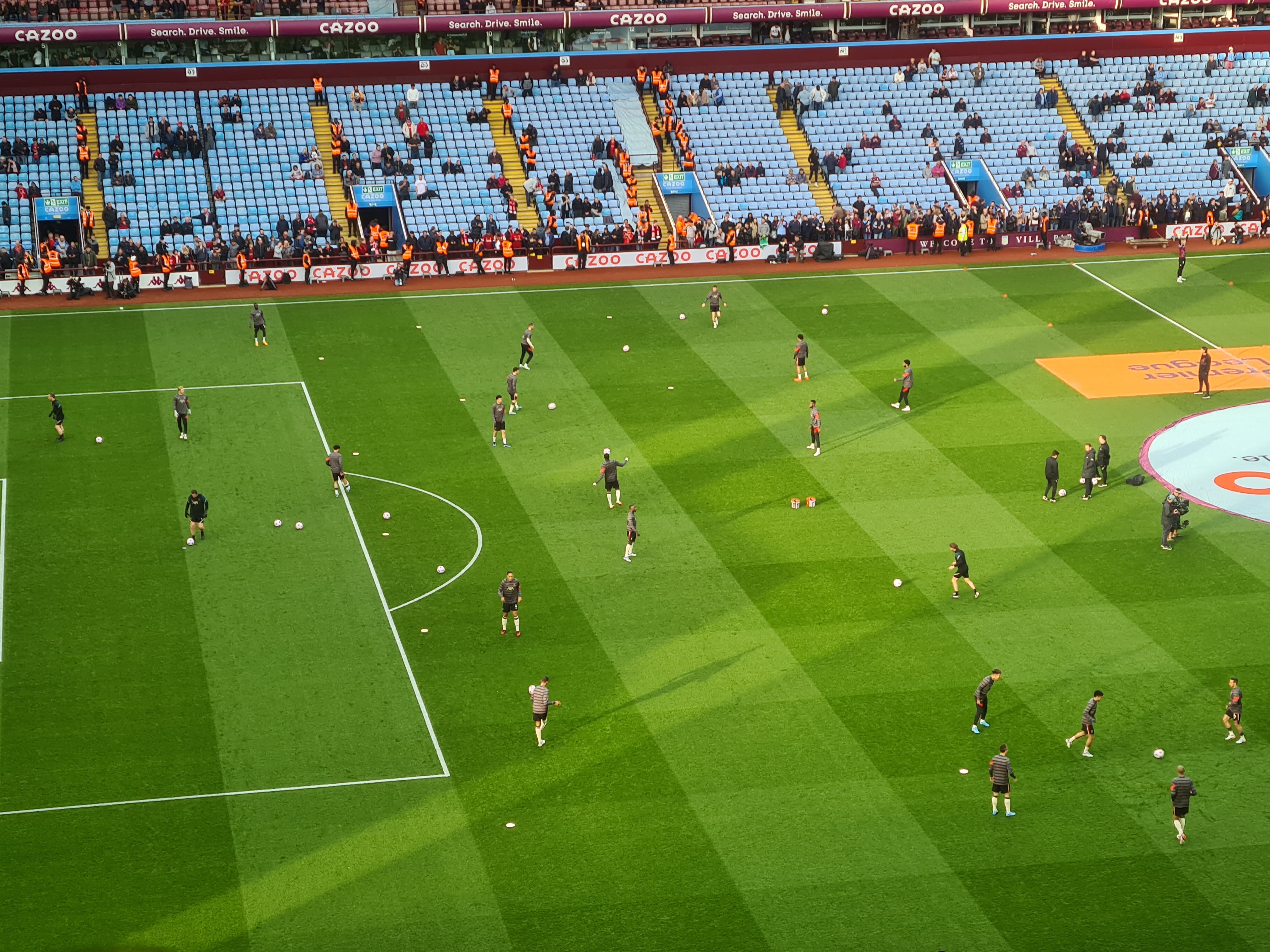
Saturday, 3pm. The gates have been open for hours, and the last few fans still rush to find their seats among the crowd. It’s time for kick-off. People are united through football. No matter what problems life has thrown at one, this is the time to dedicate oneself to one's football club and one's interest. It’s supposed to be a safe space.
‘It was horrible and I felt really vulnerable’
On the way into the stadium, you might pass Vicki Griffiths. As many other employees in and around football stadiums, Vicki is a volunteer. She started watching Sevenoaks Town FC in January 2018 as one of her New Year's resolutions to go out more. “About 18 months later I turned up to a match and one of the staff said they were short-staffed, so I offered to help out and as the old saying goes: the rest is history!” Vicki explains.
During the infamous ‘storming of Wembley’ during the Euro 2020 finals, stewards like Vicki were threatened with knives. Hundreds of England fans stormed the holy grounds for a once in a lifetime chance to see their team win a major trophy, only to cause chaos and damage.
Unfortunately, there have also been dark days for Vicki at her beloved football club. Even before she volunteered with the club, she was effected by misogyny. She explains: “two players were sent off, and when the second player was walking off the pitch he glared at me and snapped ‘Bitch’.”
Then, when Vicki moved to helping at the turnstiles, she found herself in another situation. “This was a few months ago, when social distancing was still compulsory. An opposition player got really moody with another female member of staff who was working on the turnstile because she asked him to do a temperature check. Once he'd done that, he swore at me when I politely asked him to sanitise his hands.” Vicki remembers she was also verbally abused by a few male opposition supporters during this situation, despite just doing her job.
“When asking for directions to the toilets, some male supporters put their hands on me, which in my opinion is totally uncalled-for because I bet they wouldn't do this to another guy,” Vicki shares.
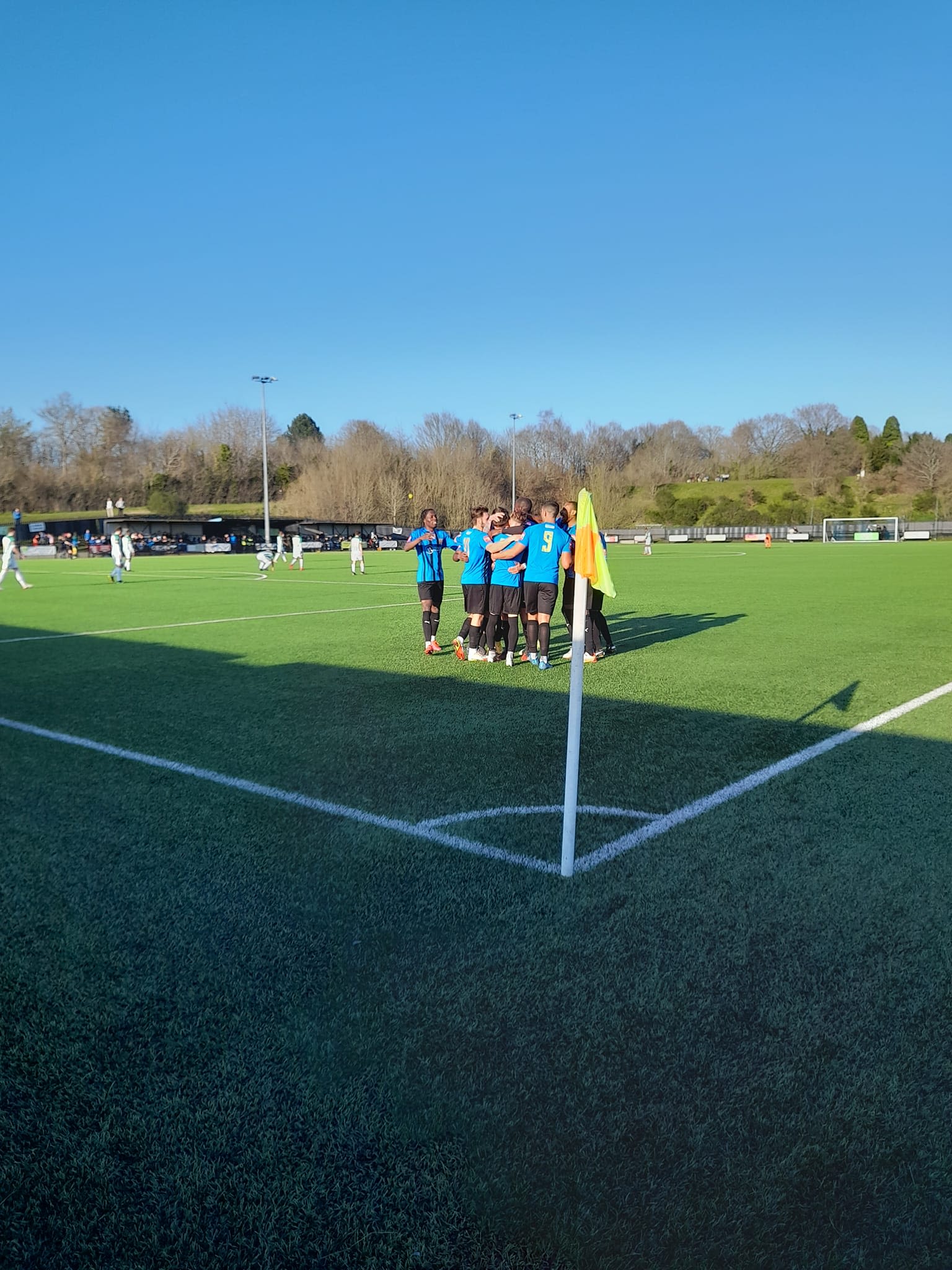
Once you're in the stadium and the game starts, it's not just the players who shape the game of football: it’s also referees like Chloe Anderson. Chloe is an assistant referee in the Women's Super League and a referee in the Women’s Championship. In the men’s leagues, she referees the Wessex League and runs the line in the Southern and Isthmian Leagues.
Before referees moved from the FA to the Professional Game Match Officials Board (PGMOL), Chloe frequently oversaw men's games. “It's kind of like pushing women referees in women's football,” Chloe says, “so I actually haven't had a men's game since October last year, which isn't my choice.”
The first misogynistic comment Chloe can remember about herself was actually not heard directly by her, but by her father, who was on the sidelines at one of the games she was refereeing. One of the spectators was talking about her, saying she shouldn't be refereeing, she “should be in the kitchen washing up.”
“The other stuff that I've experienced is in Sunday league games," Chloe says, rolling her eyes. "I hear things like, ‘Oh, we got a female referee’. It makes you feel out of place. You've got the guy that's probably still drunk from the night before, saying ‘she's well fit’ or ‘go get her number’ when I was booking somebody up. The normal stereotype stuff is mainly about appearance.”
The most significant moment, however, was when Chloe refereed a game in Basingstoke: “I was on the line. I had fans chanting ‘oh lino lino, show us your c***.’ No stewards went up to them. There’s no protection.”
Chloe felt powerless: “I wanted to walk off, but I couldn't, and I just felt intimidated. It was horrible. I felt really vulnerable at the time. I felt like I couldn't do anything and I just didn't want to be there.”
After this experience, Chloe desperately missed a place to go to for support. She didn’t know who to turn to. “I've never been to anyone, I've just kind of got on with it and just turned up the next week. There's not a lot that they do. They say we should report anything, and then if they appeal it will go to a disciplinary hearing. But you never hear whether it has been dealt with or whether it has just been forgotten. The same situations are still happening.”
The first women's football match in England was played in 1895, but in 1921 the FA banned women from playing on Football League grounds. It took 50 years for the ban to be lifted, opening the door for female players once again.
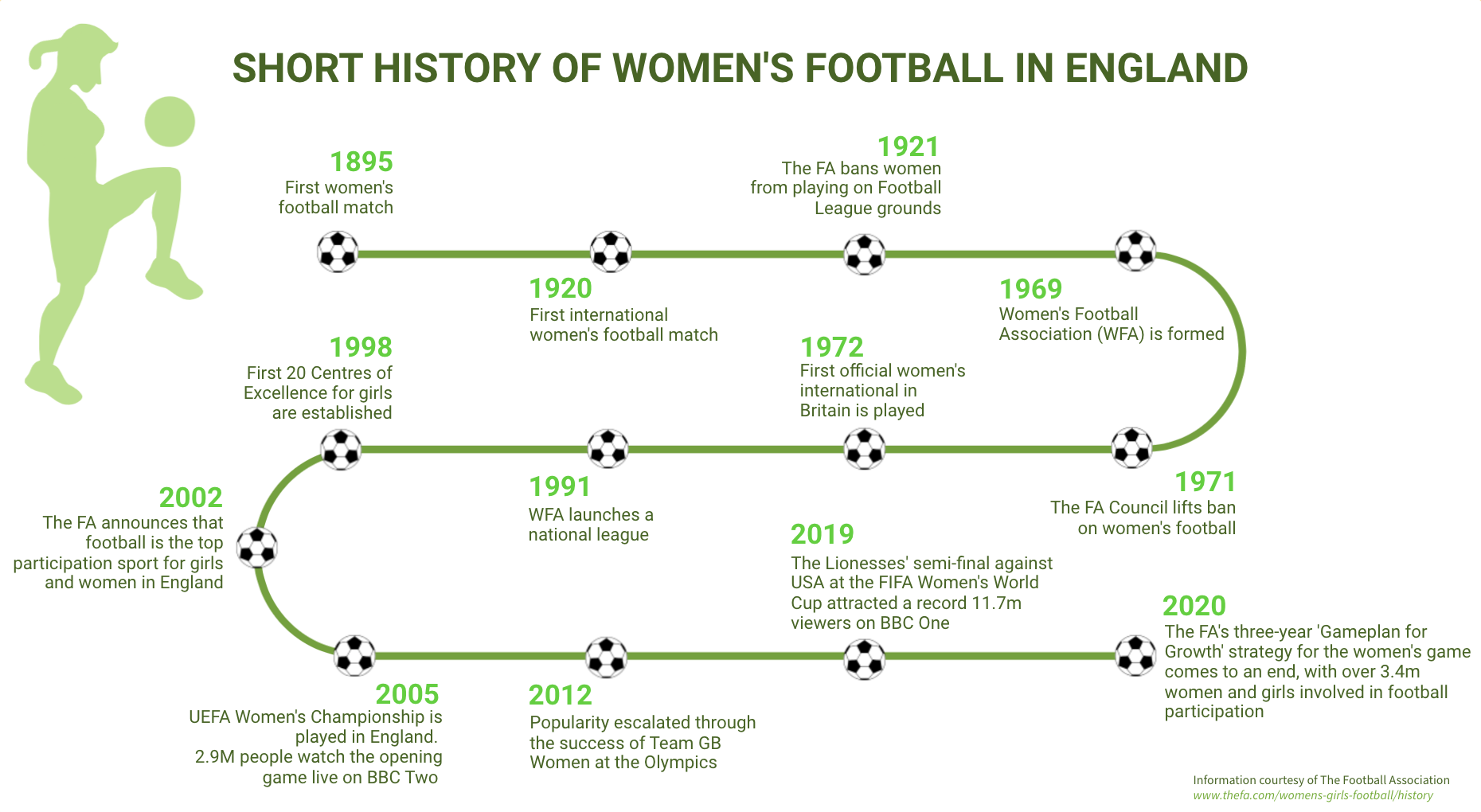
Credit: Luca Wodtke
Credit: Luca Wodtke
Over 50 years after the ban was lifted, female football players like Eva Hubbard can follow their passion. Eva plays for the Ipswich Town Ladies F.C. and is also employed as their community engagement coordinator. The way results are going, Eva is confident Ipswich will be promoted to the Championship next season.
When Eva was 8 years old, she joined her first all-boys football team. “The boys within my team were really good because they knew who I was, and I went to school with a lot of them. The boys from the other teams would say things like, ‘they've got a girl in on their team. So they're going to lose today’.”
“At school, we had rugby and football for the boys and then hockey and netball for the girls," Eva shares. "When it came to picking our GCSE PE subjects, I obviously wanted to play football. So when the girls did netball the boys played football, I asked if I could swap out. The female PE teacher who ran the netball was so disgusted! She was saying ‘she can't play football, she's got to play netball with the girls’."
Eva was adamant football was her future: "I basically just put it to my teacher and said ‘at the end of the day, next year when I'm in year 10, I'm going to be choosing football as one of my sports’.”
For Eva, it is clear that because of the support of her family, she has had a much better experience with football than many other women most likely had: “I think it’s just because I've grown up with boys, I've got brothers, so to me, it wasn't really that big of a deal whereas I would imagine that some girls in maybe more female households might be really concerned.”
Regardless of these encouraging experiences, Eva recognises that women have a hard time in the football world: “I do think it's definitely more prominent to sort of take the mick out of the women's game more than the men's game.”
For Iva Hrisimova it was always clear she was going to play football. “Since I was 4 years old, I knew I wanted to play football. As soon as I kicked a football, I knew.”
Iva currently plays for Watford Ladies Development FC First team, and even at this level she has experienced the weight of misogyny in her sport. “Whenever boys watch me play football, I always get insecure about them, thinking that they’ll judge me for a little mistake. It’s like no matter what I did and how good I played, I was always bad because I’m a woman,” Iva shares.
Her first experience with misogyny was at an early age: “I remember people asking the coaches why there’s a girl here, as girls can’t play. I was only 8 years old.”
‘Things are getting a bit better’
Despite these gruesome experiences, the general consensus is that things are on the mend. For example, there are more and more football clubs that now pay their women's team the same as the men's team, and the USA female national team just won a 6-year legal battle for equal pay. Athletes will receive $24 million as part of the deal, as well as a commitment from the football organisation that the pay for the men's and women's national teams will be equalised.
Another recent example that the female and male divide in football is improving is that the Italian football federation (FIGC) has announced that the Italian women’s Serie A league will be given professional status.
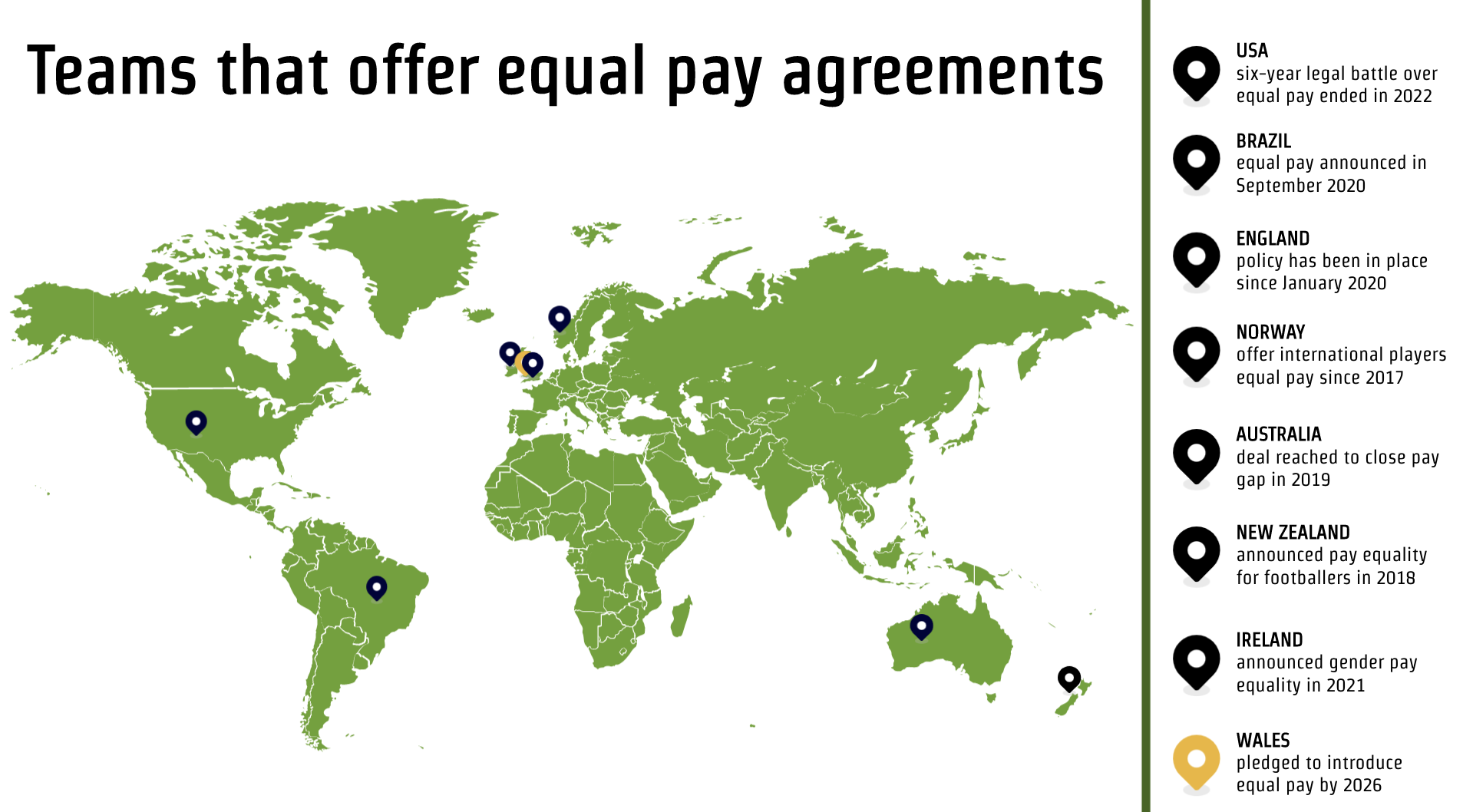
Credit: Luca Wodtke
Credit: Luca Wodtke
Eva says progression is being made: “When I first started playing, we literally just used to get family and friends that used to come and watch, no more than sort of 50-60 odd people. We recently just played West Ham in the FA Cup quarter-final. And we had over 2000 people there. It was also televised on BBC Red Button.”
“It's not just family and friends now, it’s little girls that I coach,” Eva has noticed, “so sort of trying to inspire the next generation.”
However, Eva does think social media plays a large role in achieving equality in football in the UK: “I think, obviously, the coverage of the women's game on social media now is a lot more prominent, so I think that has helped with the fact that more boys and men are open to watching it. But there are still those sort-of like keyboard warriors, especially on platforms like Twitter.
Appearance plays a big role “If you have a good-looking female footballer, there's always those comments that are thrown around, like Alisha Lehmann, for example, which plays at Aston Villa now, she gets a lot of publicity around her just purely because of the way she looks.”
Chloe remembers how shocked some people were to see a female referee at an annual panel. Now, people know her name. “However, I haven't done Sunday League for five years now, probably, and they probably haven't had a female referee in the local area since.”
As for youth coming up, Chloe thinks that nationally there is a lot of potential, but locally there’s only very few female referees coming up: “We've just recently held a grassroots development day, and a good hundred female referees across the country came to this. Locally, there's only me and this other girl that were the same level. I don't know of any other Hampshire or Dorset referees that are female, off the top of my head. I know some that qualified, but whether they've continued or not I don't know because they've all gone off the radar.”
So for her, the biggest improvement has to be made in protecting the upcoming youth: “We need to actually be giving support to them while they're refereeing as opposed to once a year when all we say is, ‘hello, these are these people. This is what you can do to help improve your refereeing, go and do it. See you next year after you've had all the abuse and struggles and highs and lows in your game, and we'll just see you at the end of the year when we probably don't get a one-to-one with you because there's like 100 to 200 of you.’"
Chloe spoke emotionally about supporting refereeing youth: “I think they need a coach that's specific to them, but that obviously requires payment and lots of other things. So whether it's logistically possible to do that, I don't know, but they just need support throughout the year to win their games. I don't think there's enough of that.”
Iva is even more critical about where football stands on equality between males and females: “I honestly don’t think that women and men will be equal in football. People will find the smallest mistake in women's football and go on about it for days, but if a man did that then they wouldn’t say anything, just because ‘men are better’”.
A 2021 survey by RunRepeat found that women’s football could get a 296.7% increase in viewers in the UK if it were broadcast on TV. And Iva agrees with this: “I don’t think we have enough representation on TV.”
Vicki pleads for improvement: “I would like to see equality between male and females involved in football, but I reckon there will always be a few people who still won’t accept that girls and women can be involved in football, or other sports too.”
“I wish more people would accept that football is not just ‘a man's game’. There should be equal coverage in the media as well of women's football, as it's just as important and interesting as the men's in my opinion,” Vicki says.
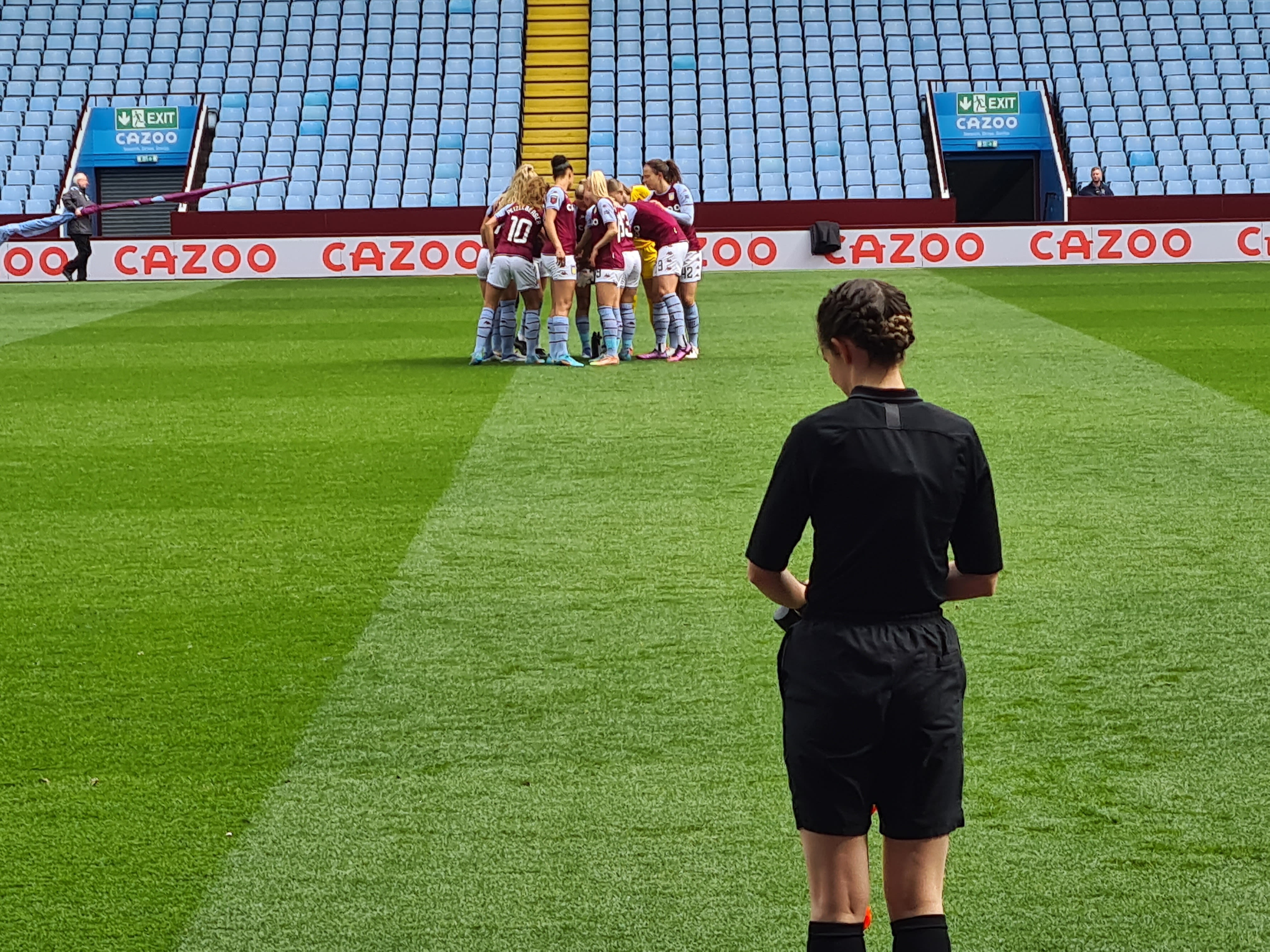
‘I genuinely don’t know what I would do without football’
While these negative experiences have a profound impact on their lives, these women cannot be separated from football. There is something deep that connects them to the sport, whether through family, friends or their own experiences. Football can become the most important thing in someone's life.
Chloe echoes the significance of football and how it positively impacts her life: “I just love the game itself, and I love the fact that I get to travel around the country and parts of the world to be able to referee. I like the people, I’ve now got friends all over the country, and it's amazing. The people that you meet are fantastic. I think there are more highs than there are lows, and we really appreciate the highs that you get and the buzz that you get from the game. It’s worth it."
Chloe has decided to put herself first: “I only value the opinions of people who matter to me. Not someone that probably isn’t up-to-date with the rules of the game trying to tell me that I haven't got a clue what I'm doing. I'd like to talk to the people who know what they're talking about.”
Vicki says that football is the second most important thing in her life, and that “working for STFC gives me a sense of purpose.”
Eva believes that her upbringing played a big part in her love for the sport: “It’s massive for me. It is literally my life. I'm now employed in a football environment and all of my decisions in life have been based with football taken into consideration. Growing up, my dad used to play football. When I could barely walk, I was kicking a ball along the sideline watching him play. It's always been a part of my life, and I think that my parents were really good because I wasn't pushed into sports. "
At university, Eva did a sport and exercise science degree whilst playing football alongside it. For her, football has definitely been a massive part of her life, especially as she is now employed by a football club. "It is a career that I can see lots of progressions with," she shares excitedly, "hopefully I'll stay in this line of work for quite a long time."
“I absolutely love it. I think there's lots of room for progression as well. There are stepping stones for me," Eva says. "The current Ipswich Town CEO Mark Ashton started off where I am as a community coach up in West Brom. He became head of the community and worked his way up, and now he's running Ipswich Town Football Club. So it's a nice sort of inspiration for me to have someone like that working as my boss. That's how I want to advance.”
For Iva, football is the best stress reliever. Football has helped her with her life and means the world to her. “I genuinely don’t know what I would do without football. I have so much passion and love for the sport.”
This journey into the football stadium and onto the pitch with these women has shown the shadow that misogyny casts on football in the UK. Whether it's hurtful comments, degrading chants or gratuitous actions, females in football stadiums are at the mercy of threats that men don't necessarily perceive.
Football is for everyone, but issues like misogyny taint the sport, and these stories of Vicki, Eva, Chloe and Iva's experiences are only a small part of the problem. There must be a change on a societal level.

